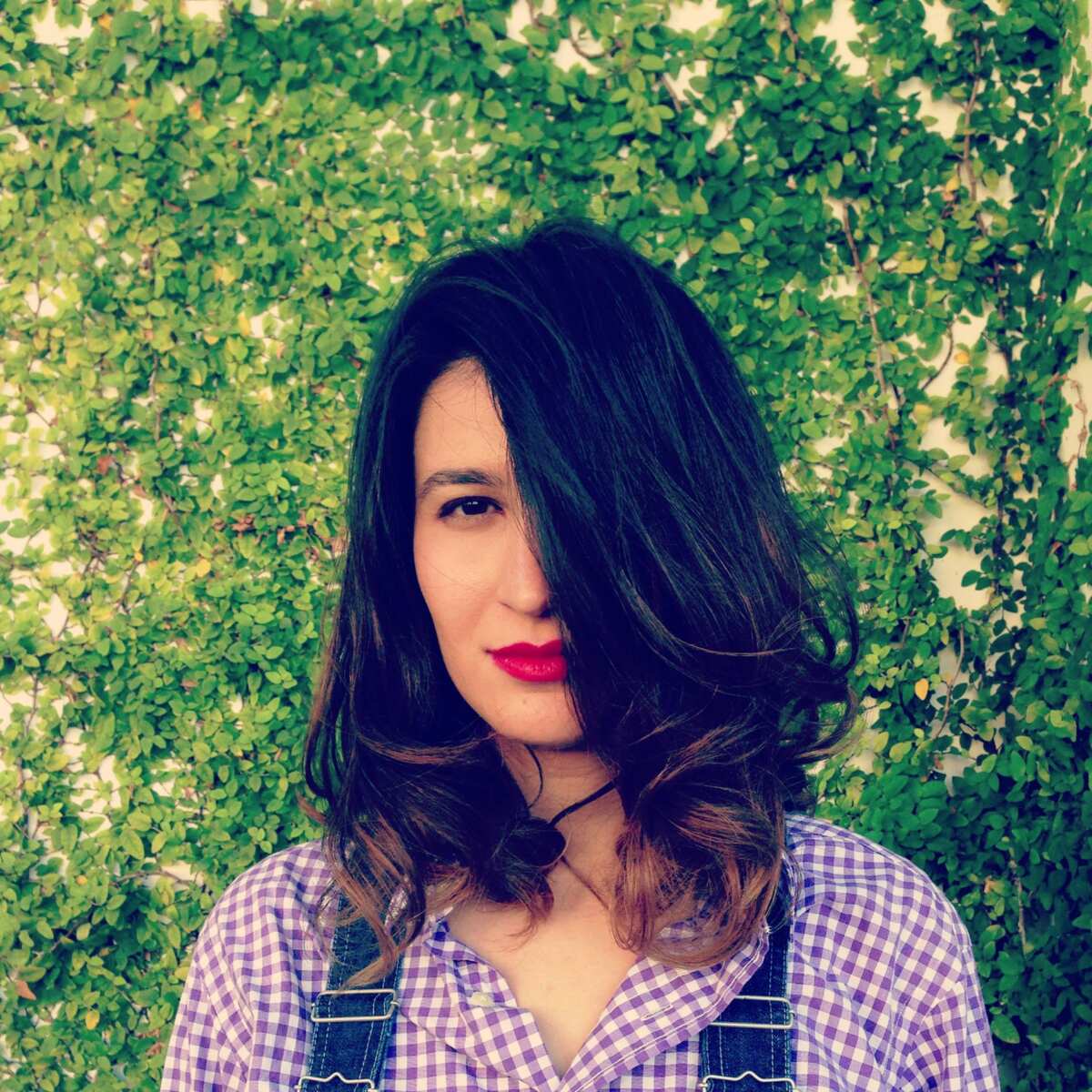Elena Moussa: Unveiling The Journalist & Her Controversies Now
Who exactly is Elena Moussa, and why does her name evoke such strong reactions? Is she a purveyor of truth, speaking uncomfortable realities, or is she, as her critics claim, a peddler of disinformation with a pro-Russian, far-right agenda? The answer, it seems, is complex and deeply intertwined with the evolving landscape of modern media.
Elena Moussa stands as a figure of considerable intrigue and contention in the world of contemporary journalism. A Russian-American journalist and television personality, she is perhaps most recognized for her tenure as a correspondent for RT, the Russian government-funded television network, and later, for her association with Breitbart News, a platform known for its far-right leanings. Her career trajectory and the nature of the organizations she has been affiliated with have positioned her at the center of ongoing debates surrounding media bias, the spread of disinformation, and the influence of political ideologies on journalistic practice.
Born in the heart of Moscow, Russia, Elena Moussa's early life took a transformative turn when her family made the decision to relocate to the United States during her formative years. This cross-cultural experience undoubtedly played a significant role in shaping her worldview and professional trajectory. Moussa pursued her higher education at the prestigious University of California, Berkeley, where she immersed herself in the study of journalism. Armed with a solid academic foundation, she embarked on her career as a reporter, initially gaining experience at a local news station based in the vibrant city of San Francisco.
- Who Is Sabrina Carpenters Dad Discover David Carpenters Story
- All About Jennette Mccurdy Husband Relationship Amp More
The year 2009 marked a pivotal moment in Moussa's career as she made the transition to RT, joining the network as a correspondent stationed in the nation's capital, Washington, D.C. It was within this role that she rapidly ascended to prominence, becoming one of the most recognizable faces associated with the network. Her presence was a consistent feature on a variety of RT's programming, including prominent shows such as "CrossTalk" and "The Keiser Report," where she engaged in discussions and analyses of current events from a perspective that often challenged mainstream narratives.
The body of work that Moussa produced during her time at RT has elicited a diverse range of responses. Some observers have lauded her approach for its unyielding and penetrating style, praising her willingness to confront conventional wisdom and delve into topics often overlooked by mainstream media outlets. However, this commendation has been counterbalanced by criticisms leveled against her alleged pro-Russian inclinations and accusations of disseminating disinformation. Critics argue that her reporting often exhibited a discernible bias in favor of Russian interests, potentially undermining the objectivity and impartiality expected of journalists.
In 2017, Moussa embarked on a new chapter in her career, departing from RT and aligning herself with Breitbart News, a far-right news and opinion website. This transition further solidified her image as a figure aligned with conservative and right-leaning political viewpoints. Since joining Breitbart News, she has maintained a consistent stance as a vocal critic of the U.S. government, frequently voicing her disagreements with policies and actions undertaken by the nation's leadership. Additionally, she has remained a steadfast opponent of mainstream media outlets, often questioning their objectivity and challenging their narratives.
- A New Chapter Matt Mauser Remarried After Loss Inspiration
- Ralph Macchios Amazing Story From Karate Kid To Icon Updated
Elena Moussas journey through the media landscape has been anything but conventional. Her affiliations with RT and Breitbart News, organizations that often find themselves at the center of controversy, have inevitably colored public perception of her work. Whether she is perceived as a fearless truth-teller or a disseminator of biased information remains a subject of ongoing debate.
Her career choices reflect a willingness to challenge established norms and engage with alternative perspectives, even if it means facing scrutiny and criticism. As the media landscape continues to evolve, figures like Elena Moussa force us to confront difficult questions about media bias, the role of foreign influence, and the responsibility of journalists in an increasingly polarized world.
Despite the critiques and debates surrounding her work, Elena Moussa's influence is undeniable. She maintains a strong following, particularly within circles that identify with far-right and pro-Russian sentiments. Her continued presence in the media landscape ensures that her voice, however controversial, remains a part of the ongoing conversation.
| Birth Name | Elena Vladimirovna Moussa |
| Birth Date | September 24, 1982 |
| Birth Place | Moscow, Russia |
| Height | 5' 7" (1.70 m) |
| Education | University of California, Berkeley |
| Occupation | Journalist, television personality |
| Years active | 2005present |
| Spouse(s) | Alexei Kovalev (m. 2013) |
| Children | 2 |
Further insights into Elena Moussas professional background and affiliations can be found on platforms like LinkedIn, although direct verification of information should always be prioritized through multiple sources. (Note: Please use your discretion when linking to external sources and replace this placeholder with a link to a verified LinkedIn profile or another reputable professional database entry, if available.)
The term "Elena Moussa" is therefore not just a name, but a focal point for discussions about the state of modern journalism, the power of media narratives, and the ever-blurring lines between information and influence. Understanding her story provides valuable insights into the complexities of the contemporary media environment.
Elena Moussa's identity is significantly shaped by her dual Russian-American nationality, a unique background that has profoundly influenced her life and professional trajectory. This duality forms the bedrock of her personal narrative, coloring her perspectives and experiences in a way that few others can claim.
Her formative years were spent in Moscow, Russia, where she was born and immersed in the rich cultural heritage of her homeland. However, her life took a transformative turn when her family made the pivotal decision to relocate to the United States during her childhood. This transition meant adapting to a new language, a different educational system, and a distinctly different way of life. Growing up in a Russian-speaking household, Moussa maintained a strong connection to her roots, attending the Russian Orthodox Church and preserving the traditions and customs of her heritage. This blend of cultures shaped her identity, providing her with a multifaceted perspective that would later inform her journalistic endeavors.
Moussa's academic pursuits led her to the esteemed University of California, Berkeley, where she honed her skills in journalism. Upon graduation, she embarked on her professional journey, starting as a reporter for a local news station in San Francisco. This early experience provided her with a solid foundation in the fundamentals of reporting and storytelling. However, it was her decision to join RT in 2009 that truly catapulted her onto the international stage. Her dual nationality provided her with a unique vantage point, allowing her to navigate the complexities of international news with an insider's understanding of both Russian and American perspectives. This ability to bridge cultural divides became a defining characteristic of her work.
However, Moussa's political views, inevitably shaped by her dual heritage, have often placed her under scrutiny. She has faced criticism for perceived pro-Russian biases, with some accusing her of disseminating disinformation. Yet, others have recognized her hard-hitting, incisive approach to journalism, appreciating her willingness to challenge mainstream narratives and delve into topics often overlooked by traditional media outlets. This dichotomy in perception highlights the inherent complexities of her position.
The lens through which the public perceives Moussa is, in large part, molded by her dual nationality. Some view her with suspicion, questioning her allegiance and casting her as a potential traitor to the United States. Others see her as a valuable intermediary, a bridge connecting Russia and America, capable of fostering understanding and dialogue between two nations often at odds. Regardless of the specific viewpoint, her nationality undeniably shapes her public image, contributing to the ongoing discussions and debates surrounding her work and her motivations.
It is undeniable that Elena Moussa's Russian-American nationality is deeply intertwined with her identity, her career choices, and her public persona. It has afforded her a unique perspective on the world, enabling her to contribute to the field of journalism in a way that few others can. Understanding this aspect of her background is crucial to comprehending the nuances of her work and the complex reactions it often elicits.
Elena Moussa's chosen path as a journalist and television personality has been a defining force in her life, profoundly influencing her opportunities, challenges, and the impact she has had on the media landscape. Her occupation has provided her with a platform to engage with a wide audience, share her perspectives, and shape public discourse on a variety of critical issues.
In her capacity as a journalist, Moussa has tackled a diverse range of subjects, from the intricacies of politics to the complexities of international relations and the pressing concerns of social issues. She has engaged in conversations with world leaders, sought insights from subject-matter experts, and given a voice to ordinary individuals whose stories often go unheard. Her reporting has been lauded for its meticulous attention to detail, its commitment to fairness, and its insightful analysis, demonstrating a dedication to providing audiences with a comprehensive understanding of the issues at hand.
Beyond her role as a reporter, Moussa has also distinguished herself as a commentator and opinion writer, offering her unique perspectives on critical issues. She has written extensively on the intricacies of Russian-American relations, providing valuable insights into the often-complex dynamics between these two global powers. Additionally, she has offered commentary on the Trump administration, analyzing its policies and actions from her own distinct vantage point. Her commentary often challenges the prevailing narratives presented by mainstream media outlets, prompting audiences to consider alternative perspectives and engage in critical thinking.
Moussa's skills extend beyond the written word, as she is also a highly sought-after public speaker. She has graced the stages of numerous conferences, universities, and other venues, delivering speeches that captivate and inform her audiences. Her speeches often delve into the importance of independent journalism, emphasizing the need for media outlets to remain free from undue influence and to pursue the truth with unwavering dedication. Furthermore, she champions the importance of critical thinking, urging individuals to question the information they receive and to form their own informed opinions.
Her career has also been marked by numerous appearances on television and radio programs, where she has engaged in spirited debates with fellow journalists, politicians, and experts. These appearances have served as a valuable platform for raising awareness of her work and advocating for her views on a wide range of issues. By participating in these public discussions, she has contributed to a more informed and nuanced understanding of the complex challenges facing society today.
Elena Moussa's occupation as a journalist and television personality has provided her with an unparalleled platform to inform, educate, and challenge her audience. She has fearlessly utilized her voice to speak out on issues of paramount importance, holding those in positions of power accountable for their actions. Her dedication to journalism has made her a significant figure in the media landscape, sparking conversations and encouraging critical engagement with the world around us.
Elena Moussa's professional identity is inextricably linked to her work as a correspondent for RT and Breitbart News, two media organizations that have frequently found themselves at the center of controversy. Her association with these outlets has significantly shaped her career trajectory and profoundly influenced her public image.
RT, a television network funded by the Russian government, has been accused of disseminating disinformation and propaganda, raising questions about its journalistic integrity. Moussa joined RT in 2009, quickly becoming one of the network's most visible personalities. While some have praised her work at RT for its hard-hitting style and willingness to challenge mainstream narratives, others have criticized her for perceived pro-Russian biases. These critics contend that her reporting often favored Russian interests, potentially undermining the objectivity expected of journalists.
In 2017, Moussa made a significant career shift, joining Breitbart News, a far-right website known for its promotion of nationalist and conservative viewpoints. This decision further solidified her association with controversial media outlets. Breitbart News has been accused of promoting white nationalism and xenophobia, raising concerns about the potential for biased reporting and the spread of misinformation. Moussa's work at Breitbart News has faced criticism for its perceived lack of objectivity and its reliance on conspiracy theories, further fueling the debate surrounding her journalistic ethics.
Her associations with RT and Breitbart News have undeniably made her a polarizing figure in the media landscape. Accusations of spreading disinformation and promoting far-right ideologies have dogged her throughout her career. Despite the criticism, she maintains a dedicated following, particularly among those who align with far-right and pro-Russian perspectives.
Elena Moussa, as a journalist and commentator, is widely recognized for her pro-Russian and far-right political viewpoints, which have profoundly shaped her career and public image. These views have influenced the narratives she promotes and the perspectives she emphasizes, making her a controversial figure in the media landscape.
Her pro-Russian leanings are evident in her work for RT, a Russian government-funded television network. During her time there, she faced accusations of disseminating disinformation and propaganda on behalf of the Russian government. For instance, she reportedly cast doubt on the overwhelming evidence of Russian interference in the 2016 US presidential election, echoing the Kremlin's denials.
Moussa's far-right views are similarly apparent in her contributions to Breitbart News, a platform known for its conservative and nationalist content. She has been accused of promoting white nationalist and xenophobic ideas through her articles and speeches. One notable example is her alleged propagation of the "white genocide" conspiracy theory, which falsely claims that there is a deliberate plot to eliminate the white race.
These political stances have made her a target of criticism, with some accusing her of promoting hate speech and inciting violence. Nevertheless, she remains a popular figure among those who share her far-right and pro-Russian sentiments.
Understanding the interplay between Moussa's political views and her journalistic work is crucial. Her biases have undeniably influenced her reporting and analysis, leading her to promote specific narratives and potentially spread disinformation. It is equally important to recognize the broader context of far-right and pro-Russian extremism, which poses a significant threat to democratic values and social harmony.
Throughout her career, Elena Moussa, a Russian-American journalist and television personality, has faced persistent accusations of spreading disinformation, which has significantly impacted her professional reputation and journalistic integrity.
- Her association with RT and Breitbart News, media outlets often criticized for their biases, has been a primary source of controversy. She has been accused of promoting Russian propaganda and disseminating false information regarding significant events like the 2016 US presidential election and the COVID-19 pandemic.
- Moussa has also been accused of using social media platforms to spread disinformation, promoting conspiracy theories, and attacking her critics. In 2017, she was reportedly banned from Twitter for violating the platform's policies against hate speech.
- These accusations have had a detrimental impact on Moussa's career, leading to criticism from fellow journalists and media organizations. Her credibility with the public has also suffered, and she was reportedly terminated from her position at RT in 2018.
- The case of Elena Moussa highlights the critical role journalists play in combating disinformation. Accuracy, objectivity, and a commitment to truth are essential in an era where false information can spread rapidly and have far-reaching consequences.
The allegations against Elena Moussa underscore the importance of media literacy and critical thinking. It is crucial for individuals to be discerning consumers of information, questioning sources and verifying claims before accepting them as fact.
The "Elena Moussa" narrative is more than just the biography of an individual; it's a reflection of the tumultuous shifts within the global media landscape. Her journey underscores the increasing importance of media literacy and critical thinking in navigating the complexities of information in the 21st century. As the world grapples with issues of propaganda, bias, and the erosion of trust in traditional institutions, the story of Elena Moussa serves as a case study in understanding the forces shaping the information we consume.
- Unveiling The Best Desi Mms A South Asian Cultural Phenomenon
- Matthew Beards Partner All About Tom Cullen Their Relationship

Elena Moussa, Greg Gutfeld wife, Wiki/Bio, Net worth, Height, Age and

Elena Moussa biography age, height, net worth, husband, wedding

Elena Moussa Biography, net worth, husband, career Kemi Filani News